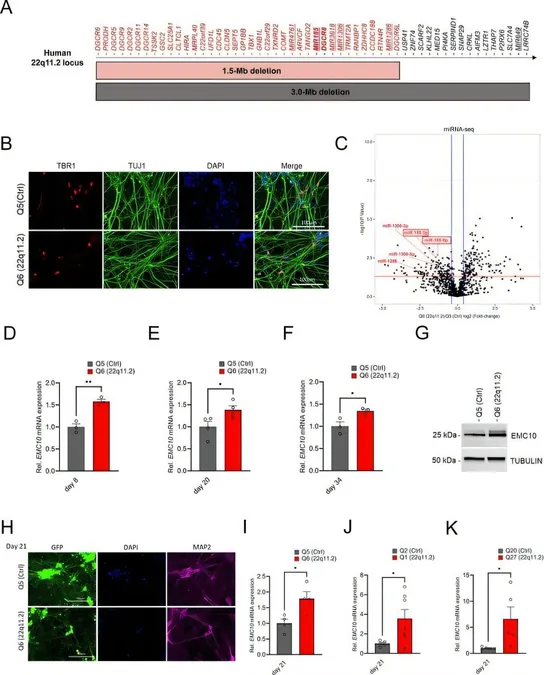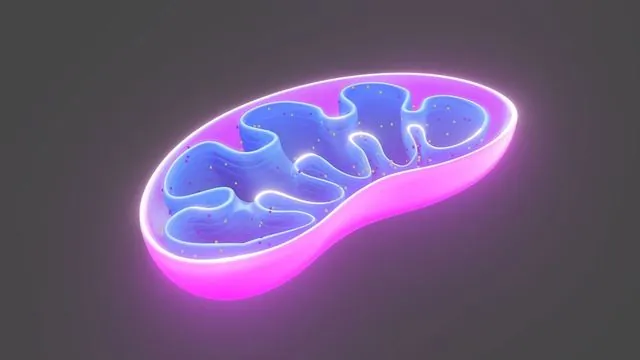
Revolutionary Gene Targeting Could Reverse Cognitive Deficits in 22q11.2 Deletion Syndrome
2025-05-27
Author: Arjun
Breakthrough Research Promises Hope for 22q11.2 Deletion Syndrome Patients
A groundbreaking study has unveiled a potential game-changer in combating cognitive deficits associated with 22q11.2 Deletion Syndrome (22q11.2DS), heralded as a beacon of hope for those affected. This condition, which impacts approximately 1 in 4,000 births, is linked to various serious challenges, including learning disabilities and a significantly heightened risk of schizophrenia.
What Is 22q11.2 Deletion Syndrome?
Often referred to as DiGeorge syndrome, 22q11.2DS is a genetic disorder arising from the loss of a small segment of chromosome 22. Symptoms can range from speech impediments and attention disorders to more severe manifestations like cleft palate. Those living with 22q11.2DS often face lifelong challenges, making the pursuit of effective therapies all the more critical.
The Role of EMC10 in Synaptic Function
Recent research published in eLife reveals a surprising link between cognitive function and a specific protein known as EMC10. By strategically reducing the levels of this protein, scientists have demonstrated that they can restore both synaptic health and cognitive abilities in models of the syndrome, a discovery that has captivated the scientific community.
Lead author Martin Lackinger from Columbia University's Mortimer B. Zuckerman Mind Brain and Behavior Institute states, 'Despite its prevalence and severe impact, no targeted therapies currently exist to address the underlying molecular mechanisms of 22q11.2 Deletion Syndrome. Our aim was to determine whether lower EMC10 levels could alleviate symptoms in human cell models.'
The Research Process: From Mice to Human Cells
The research team created neurons from stem cells sourced from individuals with and without the syndrome to investigate EMC10's role further. The results were striking: neurons with 22q11.2 deletions exhibited a significant reduction in certain critical microRNAs, leading to elevated EMC10 levels. Importantly, lowering EMC10 levels in these neurons led to normalized dendritic growth – a crucial element for effective neuronal communication.
Promising Results in Animal Testing
In animal models, reducing EMC10 not only improved the structural integrity of brain cells but also enhanced their calcium signaling – vital for effective brain communication. Measuring the broader impact of this reduction revealed a restoration of hundreds of genes linked to brain development and synapse formation, raising the possibility of reversing core cognitive deficits.
A Ray of Hope for Adult Patients
To further assess the therapeutic potential, researchers targeted adult mouse models. This stage investigated whether lowering EMC10 could mitigate cognitive impairments related to social memory, a key area often affected by schizophrenia. The results were nothing short of remarkable: treated mice exhibited enhanced social memory performance with no adverse effects on their behavior.
The Path Forward: Developing New Treatments
Excitingly, the team explored potential treatment avenues using antisense oligonucleotides (ASOs), synthetic strands designed to inhibit EMC10's functions. Administering ASOs to mature mice led to sustained reductions in EMC10 levels and significant improvements in memory. Impressively, these effects lasted for over two months, suggesting the possibility of long-term treatment benefits.
A Future Full of Possibilities
Joseph Gogos, senior author and Principal Investigator, stated, 'These findings provide compelling preclinical evidence that therapies aimed at reducing EMC10 levels could reverse some cognitive symptoms in 22q11.2 Deletion Syndrome.' As researchers prepare for future studies focused on long-term safety and clinical applications, this work illuminates a promising pathway toward effective therapies that could alter the lives of those managing this challenging syndrome.
With continued dedication, the vision of a world where the impacts of 22q11.2 Deletion Syndrome are significantly diminished—and potentially treatable—could soon be a reality.




 Brasil (PT)
Brasil (PT)
 Canada (EN)
Canada (EN)
 Chile (ES)
Chile (ES)
 Česko (CS)
Česko (CS)
 대한민국 (KO)
대한민국 (KO)
 España (ES)
España (ES)
 France (FR)
France (FR)
 Hong Kong (EN)
Hong Kong (EN)
 Italia (IT)
Italia (IT)
 日本 (JA)
日本 (JA)
 Magyarország (HU)
Magyarország (HU)
 Norge (NO)
Norge (NO)
 Polska (PL)
Polska (PL)
 Schweiz (DE)
Schweiz (DE)
 Singapore (EN)
Singapore (EN)
 Sverige (SV)
Sverige (SV)
 Suomi (FI)
Suomi (FI)
 Türkiye (TR)
Türkiye (TR)
 الإمارات العربية المتحدة (AR)
الإمارات العربية المتحدة (AR)